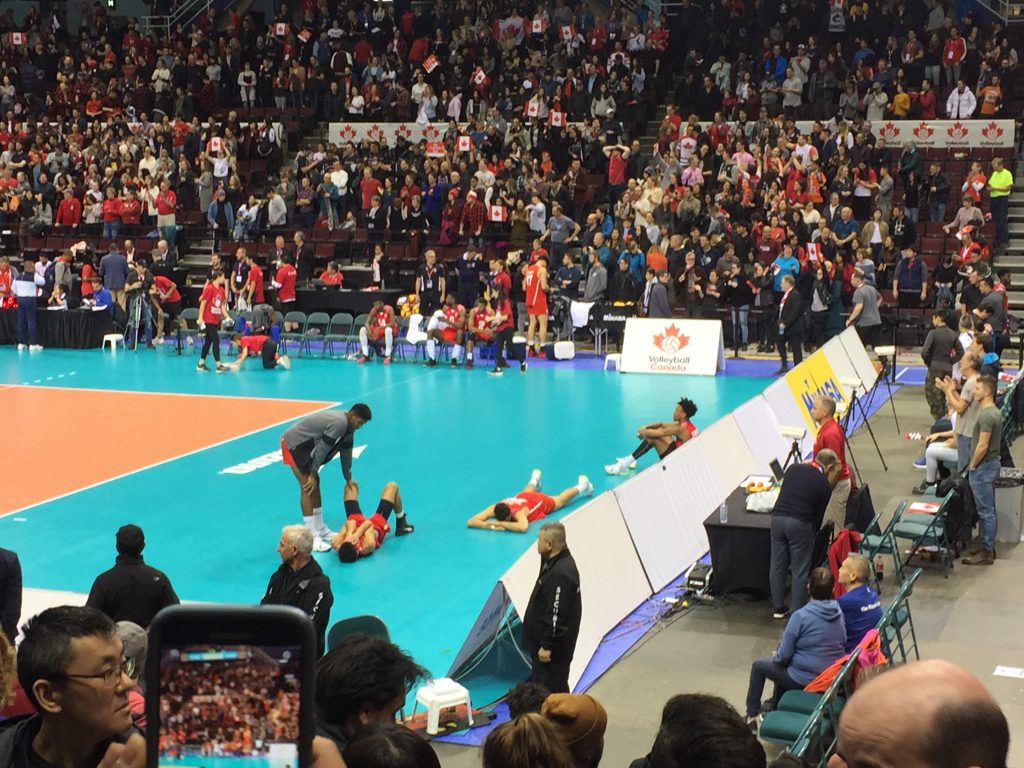I was a rugby player for 12 years. During this time, I played for my high school, a number of regional teams, two universities, and the BC provincial team. I retired in my early twenties. I miss the game sometimes, but I’ve never looked back on my choice to step down from the competition.
The choice to leave was hard, but I ultimately realized it wasn’t making me happy anymore. I had a string of injuries that had never healed, and severe anxiety, likely as a result of multiple concussions. My pre-game routine was essentially a prolonged panic attack, and my post-game rituals including replaying every moment and every mistake that were solely and exclusively my fault (they weren’t). But the IOC had just announced rugby 7s would be included in the summer Olympics, and wasn’t that every athlete’s dream?
When I was playing at the University of Victoria, I remember our coach telling a story that happened in a high school provincial final. Their captain and star player had badly sprained her ankle during a play. There was only a few minutes left and it was a tie game. Our coach recounted the story with tears in his eyes, how the captain rallied back after demanding to tape her ankle up, and their team won the provincial final for the first time.
It was a nice story, something you might see in a movie. At the same time, I couldn’t help but think of the reckless further damage she was risking to her ankle. I thought of her team mates on the sidelines, probably dying for the opportunity to do their team and their captain proud in the final minutes of the game. I thought of how I would feel if I were one of them. In the heat of the moment I would be excited and proud for my team, but later feel the burden of being a worse alternative than someone with only one good leg.
This attitude of toughness and my identity as a rugby player spilled over into every aspect of my life. I wanted to handle everything on my own and no, I don’t need help, I got this. I am strong enough to do it all. Mental fortitude has its place, but so does vulnerability.
This idea of needing to be tough held me back from seeking professional help for my anxiety. It held me back from taking time off to treat my injuries. It put me back in the game too soon after a concussion. It kept me at a job I hated for six months. It kept me in an abusive relationship. It kept me in the game long after my heart stopped being in it.
There were years I had a lot of fun playing at the University of British Columbia, but ultimately that’s where I was when I made the choice to step back. Our coach had a style that often felt like she was pitting us against each other instead of nurturing a team. Drills regularly involved competing with someone else who played your position, and the winner often secured the starting spot in the game that week. It led to a lot of resentment towards team mates, and increased the amount of time I spent replaying mistakes in my head, over and over, while trying to study or during long nights with little sleep.
One practice involved a drill where if you messed up, the rest of the team ran sprints while you stood alone timing them. I wasn’t the only person that messed up, but it happened to me twice. After practice, when everyone was inside changing, I ran every single sprint they had to run, back to back with no breaks. I spent the rest of the day trying to stifle thoughts that all my team mates hated me, that I was the worst player on the team, all I ever do is let people down, no one likes me, I will never amount to anything in life, and it kept escalating. That night I replayed those two mistakes hundreds of times while I tried and failed to fall asleep. That was the day I knew it was time to quit.
In January 2020, I had the pleasure of watching the NORCECA men’s volleyball Tokyo qualifier, in which the winner would be heading to the summer Olympics. It was an exciting match, often going point-for-point, that went right to five sets. I thought the Cubans had the win when they swept the first two sets, but Canada came out hard and won the next three to win the match. Everyone was on their feet during the last set and exploded when Canada pulled off the win.

But while everyone was cheering on Canada’s win, I couldn’t take my eyes off the Cuban players. They left everything they had on the floor. Many of them were openly weeping. It was an emotional moment watching them try to bear the burden of that outcome. Most people will never understand that level of pressure.
People sometimes ask if I’ll ever get back on the pitch, and it’s an interesting idea to think about what rugby would be like for me now – I’m on medication for my anxiety, and I’m strong and fit as I’ve ever been. But I’ve now found different things that speak to my competitive spirit, and always keep the fun. I like going out to watch casual rugby and see Canada play, and I try not to dwell on what might have been.
I just hope that greater awareness of mental health and brain injury in contact sports will help protect the athletes of today and tomorrow.
